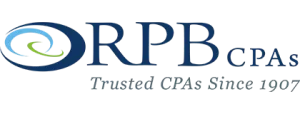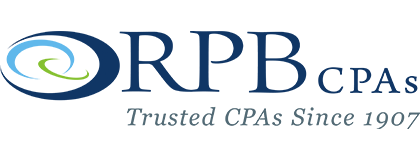General Newsletters
Relief from not making employment tax deposits due to COVID-19 tax credits
The IRS has issued guidance providing relief from failure to make employment tax deposits for employers that are entitled to the refundable tax credits provided under two laws passed in response to the coronavirus (COVID-19) pandemic. The two laws are the Families First Coronavirus Response Act, which was signed on March 18, 2020, and the Coronavirus Aid, Relief, and Economic Security Act (CARES) Act, which was signed on March 27, 2020. Employment tax penalty basics The tax code imposes a penalty for any failure to deposit amounts as required on the date prescribed, unless such failure is due to reasonable
CARES ACT changes retirement plan and charitable contribution rules
As we all try to keep ourselves, our loved ones, and our communities safe from the coronavirus (COVID-19) pandemic, you may be wondering about some of the recent tax changes that were part of a tax law passed on March 27. The Coronavirus Aid, Relief, and Economic Security (CARES) Act contains a variety of relief, notably the “economic impact payments” that will be made to people under a certain income threshold. But the law also makes some changes to retirement plan rules and provides a new tax break for some people who contribute to charity. Waiver of 10% early
Families First Corona Virus Response Act Update
The quick spread of the COVID-19 virus has impacted nearly every facet of your business. At Reilly, Penner & Benton LLP we understand that the uncertainty of the current situation and what the future might hold can add unnecessary stress and pressure. At RPB, the health and safety of our community - staff, clients, business partners - is our number one priority. Because of this, we have provided a list of links to help you stay on top of this ever-changing environment. We will continue to provide guidance as our economic environment changes. IRS: https://www.irs.gov/coronavirus World Health Organization: https://www.who.int/emergencies/diseases/novel-coronavirus-2019 Centers for
Numerous tax limits affecting businesses have increased for 2020
An array of tax-related limits that affect businesses are annually indexed for inflation, and many have increased for 2020. Here are some that may be important to you and your business. Social Security tax The amount of employees’ earnings that are subject to Social Security tax is capped for 2020 at $137,700 (up from $132,900 for 2019). Deductions Section 179 expensing: Limit: $1.04 million (up from $1.02 million for 2019) Phaseout: $2.59 million (up from $2.55 million Income-based phase-out for certain limits on the Sec. 199A qualified business income deduction begins at: Married filing jointly: $326,600 (up from $321,400) Married
Conflict-of-interest policies are too important for nonprofits to neglect
Does your not-for-profit organization have a conflict-of-interest policy in place? Do your board members, trustees and key employees understand how the policy affects them? If you answer “no” to either (or both) of these questions, you have some work to do. A duty Nonprofit board officers, directors, trustees and key employees all must avoid conflicts of interest because it’s their duty to do so. Any direct or indirect financial interest in a transaction or arrangement that might benefit one of these individuals personally could result in bad publicity, the loss of donor and public support, and even the revocation of
Employee benefit plans: Do you need a Form 5500 audit?
Some benefit plans are required to include an opinion from an independent qualified public accountant (IQPA) when filing Form 5500 each year. The IQPA examines the plan’s financial statements and schedules to ensure they’re presented fairly and in conformity with Generally Accepted Accounting Principles (GAAP). The financial statements and IQPA opinion are often referred to collectively as the “audit report.” 100 participant rule Generally, employee benefit plans with 100 or more participants — including eligible, but not participating, as well as separated employees with account balances — must include an audit report with Form 5500, “Annual Return/Report of Employee Benefit
Year-end accounting recap
The Financial Accounting Standards Board (FASB) hasn’t issued any major new accounting rules in 2019. But there have been some important developments to be aware of when preparing annual financial statements under U.S. Generally Accepted Accounting Principles (GAAP). Deferral of Major Accounting Rules Accounting Standards Update (ASU) No. 2019-09 delays the effective date of the updated guidance for long-term insurance contracts. For public business entities, except smaller reporting companies (SRCs), the effective date is delayed until fiscal years beginning after December 15, 2021. For all other entities, the effective date is postponed until fiscal years beginning after December 15, 2023.
Wisconsin Sales & Use Taxes – Are You Ready for 2020?
As we near the end of 2019 and 2020 rapidly approaches, we find our Accounting Services Department busy getting ready for the changes ahead. The end of the year means finalizing payroll reports and sales tax filings along with year-end bookkeeping and numerous other work for our accounting services clients. But, it also means bringing our clients up to speed on the changes for the year to come. For 2020, one such change is in the area of Wisconsin Sales Taxes. For what seems like an eternity, Wisconsin has had various additional city/local/additional taxes above and beyond our base 5%
Counting your employees for ACA compliance purposes
It seems like a simple question: How many full-time workers does your organization employ? But, when it comes to the Affordable Care Act (ACA), the calculation can be complicated — and the answer is important. Potential penalty The number of workers you employ determines whether your organization is an applicable large employer (ALE). If you’re an ALE, your organization may be subject to a penalty tax for either: Failing to offer minimum essential health care coverage to all full-time employees (and their dependents), or Offering eligible employer-sponsored coverage that isn’t “affordable” or doesn’t offer “minimum value.” The penalty tax
Management letters: Have you implemented any changes?
Audited financial statements come with a special bonus: a “management letter” that recommends ways to improve your business. That’s free advice from financial pros who’ve seen hundreds of businesses at their best (and worst) and who know which strategies work (and which don’t). If you haven’t already implemented changes based on last year’s management letter, there’s no time like the present to improve your business operations. Reporting deficiencies Auditing standards require auditors to communicate in writing about “material weaknesses or significant deficiencies” that are discovered during audit fieldwork. The AICPA defines material weakness as “a deficiency, or combination of



